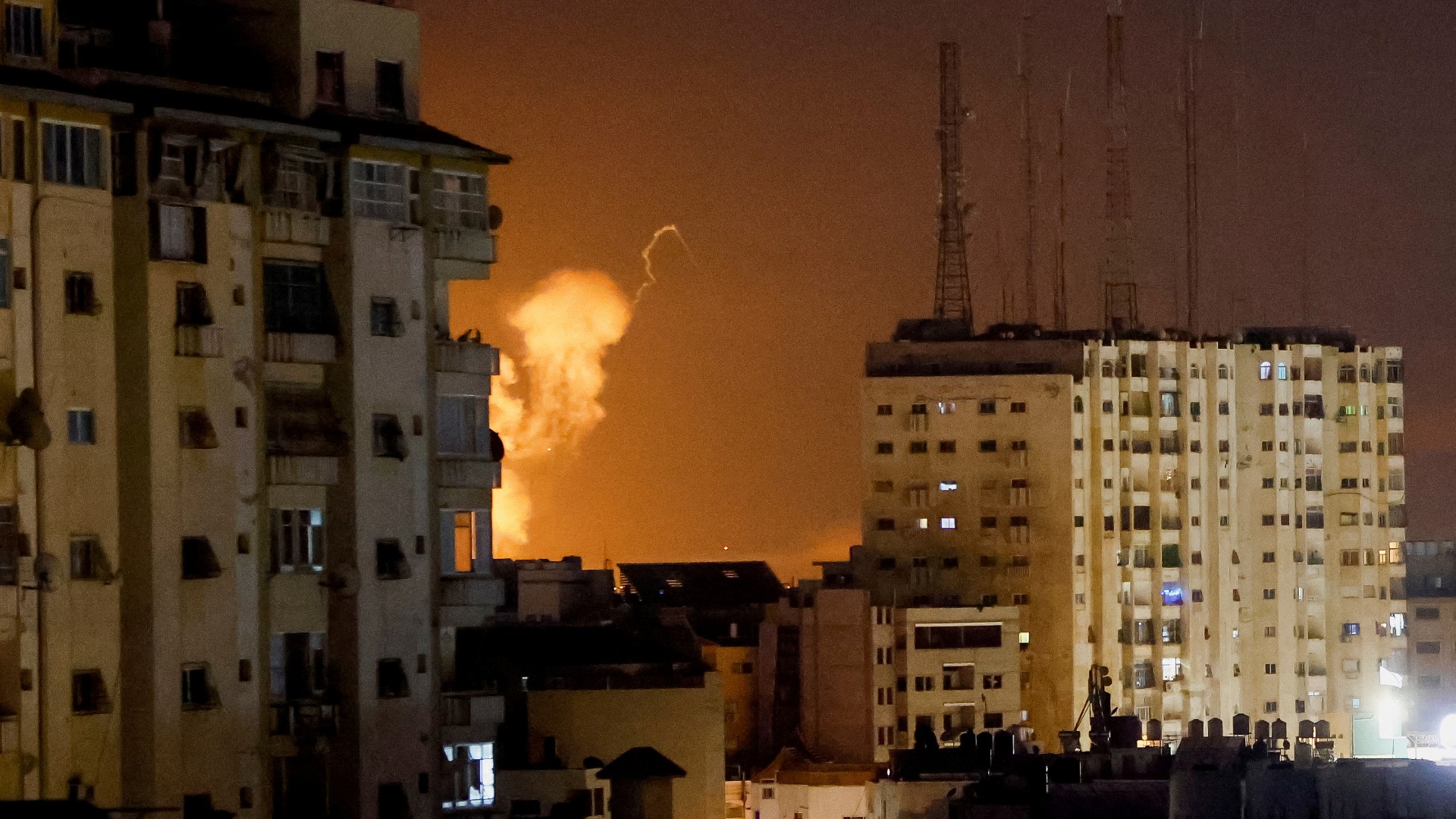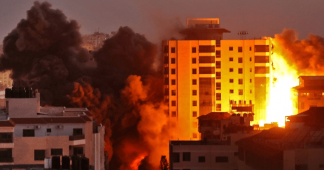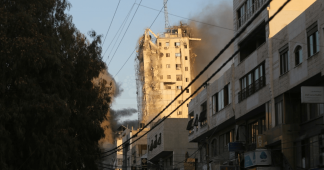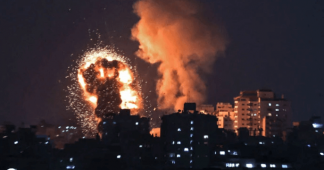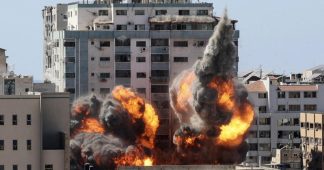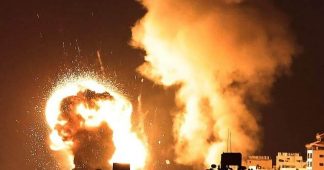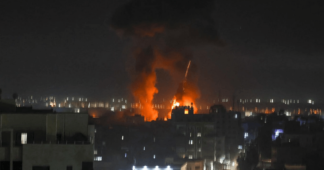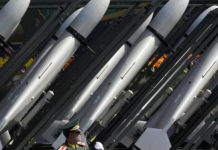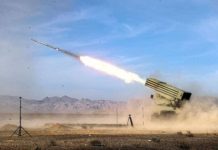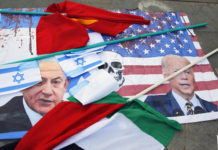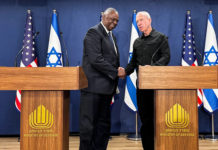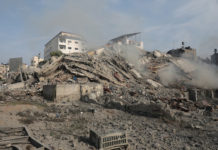The Israeli military launched air strikes on Lebanon and the Gaza Strip on Friday, hours after rockets were fired from Lebanon’s south into Israel on Thursday afternoon.
The military said the strikes in Lebanon targeted infrastructure belonging to the Palestinian movement Hamas. Local media said farmland around al-Rashadieh, a seafront refugee camp just south of the city of Sour, was hit.
The nearby village of al-Kalila, where rockets were fired from earlier, was also reportedly targeted. There are no known casualties.
The Lebanese Army in a tweet said it had located several rockets prepared for launch in southern Lebanon. Unifil, the UN peacekeeping force on the Lebanon-Israeli border, said “both sides have said they do not want a war”.
The Israeli military launched air strikes on the Gaza Strip on Friday, hours after rockets were fired from Lebanon into Israel on Thursday, amid repeated Israeli assaults on worshippers in Jerusalem's Al-Aqsa Mosque this week.
There were no immediate reports of casualties pic.twitter.com/D8UpnWEk4z
— Middle East Eye (@MiddleEastEye) April 6, 2023
Several areas in the Gaza Strip were also hit in different raids which started after midnight local time. There were also no reports of casualties, according to the Palestinian health ministry.
Anti-ballistic missiles and rockets were fired from Gaza in response, triggering sirens in several Israeli towns and cities bordering the strip.
The Israeli army said that at least 44 rockets or projectiles were fired from Gaza.
Hamas, which controls the Gaza Strip, condemned the Israeli air strikes on Lebanon and said it stood by the Lebanese people against the aggression.
“The Zionist entity and its fascist leadership are responsible for the ramifications that will result from this dangerous escalation,” it said.
Earlier on Thursday, 34 rockets were launched from areas in south Lebanon towards Israel in the worst escalation between the two neighbours since the 2006 Lebanon-Israel war.
Israel’s high-level security cabinet convened on Thursday night following the barrage with Israeli Prime Minister Benjamin Netanyahu vowing to “hit back at our enemies.”
Israel blamed the barrage of rockets – which left two people slightly wounded – on Hamas, which in turn denied knowledge of who was behind the attack.
Minutes before the Israeli air force began bombing Gaza, the Joint Operations Room – which consists of the main Palestinian armed factions in Gaza – said it was ready to respond to any Israeli aggression.
More than two million Palestinians are packed into Gaza, an area the size of the US city of Detroit. Under blockade by Israel since 2006, the besieged coastal enclave has been described as “the world’s largest open-air prison”.
Israel withdrew its troops from the strip in 2005 but maintains tight control of Gaza’s airspace and land and sea borders, which has reduced its economy to a state of collapse.
After leading an Israeli security cabinet meeting, Israeli Prime Minister Benjamin Netanyahu said that “Israel’s response, tonight and later, will exact a significant price from our enemies”.
However, he stopped short of announcing a military operation in Gaza or Lebanon.
Defence Minister Yoav Gallant said on Twitter: “The defence establishment is prepared with high readiness in all arenas… we will know how to act against any threat.”
Tensions have been running high amid repeated Israeli assaults on worshippers at Jerusalem’s Al-Aqsa Mosque this week.
Videos from inside Al-Aqsa, one of the holiest sites in Islam, showed Israeli soldiers beating worshippers as women and children cried for help in the background. Eyewitnesses told Middle East Eye the footage did not show the extent of the brutality.
The violence, during both the Muslim holy month of Ramadan and the Jewish religious holiday Passover, has provoked outrage internationally.
Hezbollah, the Lebanese movement that controls southern Lebanon and is a foe of Israel, said on Wednesday it would support “all measures” taken by Palestinians in the wake of the violent Al-Aqsa raids.
The attacks also sparked protests in Palestinian cities and towns in the West Bank and within Israel, which were violently repressed by Israeli police.
Meanwhile, an Israeli soldier was shot and moderately wounded on Friday in East Jerusalem, two days after another Israeli soldier was shot and wounded in Hebron.
This article is available in French on Middle East Eye French edition.
We remind our readers that publication of articles on our site does not mean that we agree with what is written. Our policy is to publish anything which we consider of interest, so as to assist our readers in forming their opinions. Sometimes we even publish articles with which we totally disagree, since we believe it is important for our readers to be informed on as wide a spectrum of views as possible.
